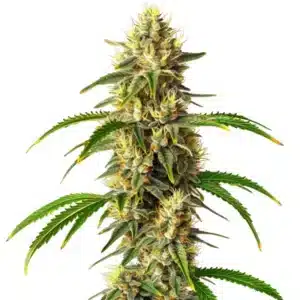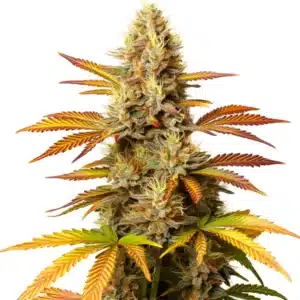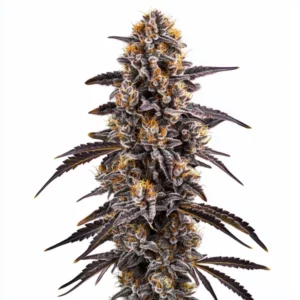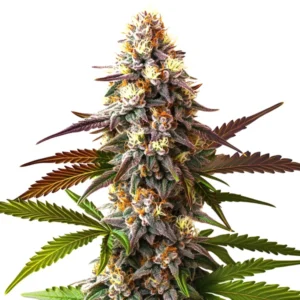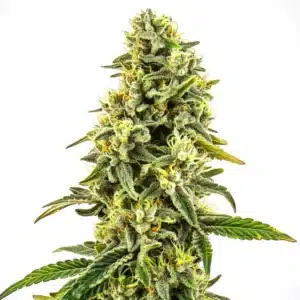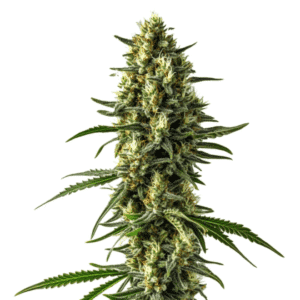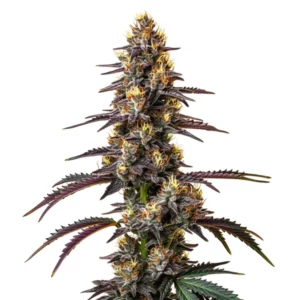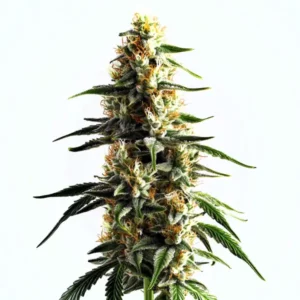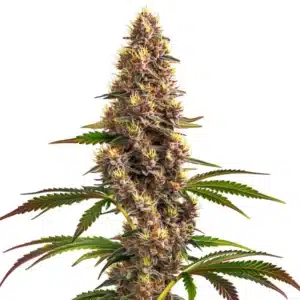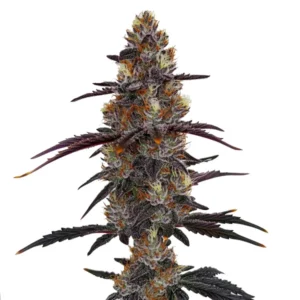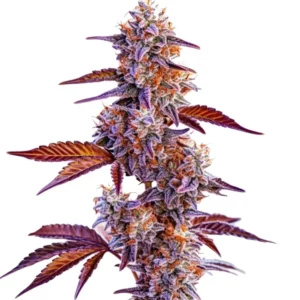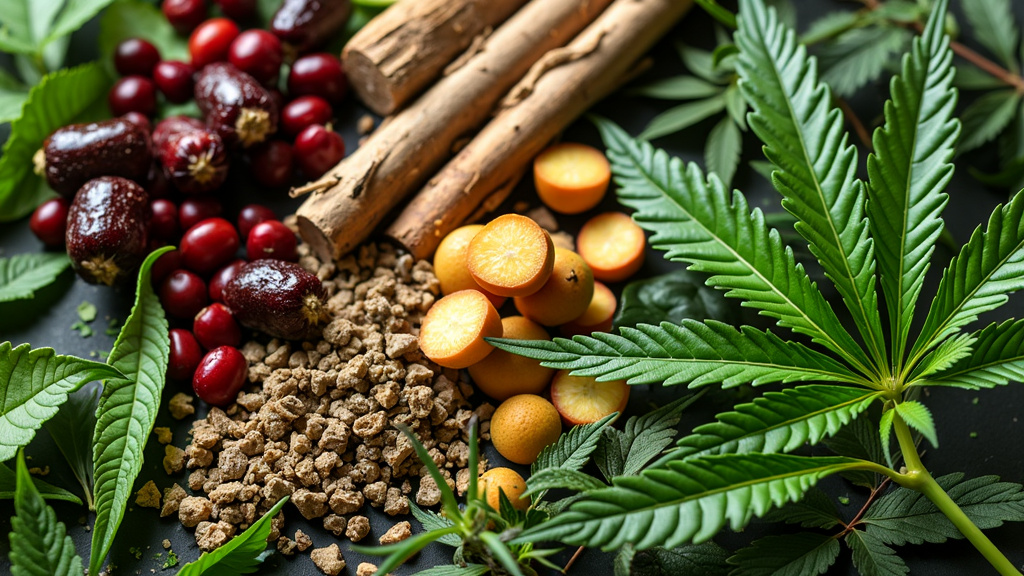
What is Caryophyllene Terpene?
Caryophyllene, also known as beta-caryophyllene (BCP), is a unique terpene found in various plants, including cannabis, black pepper, cloves, and cinnamon. What sets caryophyllene apart from other terpenes is its ability to interact directly with the body’s endocannabinoid system, specifically binding to CB2 receptors. This interaction is unusual for terpenes and gives caryophyllene its distinctive properties that contribute to its growing popularity in both medicinal and recreational cannabis use. Today, products such as Caryophyllene spray Terpenes highlight its versatility, offering users a convenient way to experience its therapeutic benefits.
Unlike most terpenes, which influence the aroma and flavor of cannabis, caryophyllene acts similarly to cannabinoids, engaging with the body’s endocannabinoid system to potentially provide therapeutic benefits. This dual functionality makes it particularly intriguing among scientists and cannabis enthusiasts alike. Its non-psychoactive nature means it offers these benefits without the intoxicating effects associated with THC.
Recommended Strains
Critical Auto
|
|
THC | 10% - 14% (Low) |
|
|
Type | Autoflowering |
|
|
Yield | Low |
|
|
Phenotype | 70% Indica / 30% Sativa |
Critical Banana
|
|
THC | 22% - 24% (Medium) |
|
|
Type | Feminized |
|
|
Yield | High |
|
|
Phenotype | 50% Indica / 50% Sativa |
Caryophyllene’s versatility extends beyond its medicinal applications. In the plant world, it serves as a protective mechanism, warding off pests and insects due to its strong, spicy scent. This natural defense mechanism is one reason why caryophyllene is so abundant in plants like black pepper and cloves, which have been used for centuries in traditional medicine for their healing properties.
What Are spray Terpenes?
Caryophyllene spray Terpenes are aromatic compounds produced by plants, contributing to their scent and flavor. In cannabis, terpenes not only determine the smell and taste of each strain but also play a role in modulating the effects of cannabinoids like THC and CBD. Each terpene, including caryophyllene, has a unique profile and potential benefits, making them an essential component in the overall experience of cannabis consumption.
The influence of terpenes in cannabis goes beyond just their aromatic qualities. They also work together with cannabinoids, a phenomenon known as the entourage effect. This means that the combination of terpenes and cannabinoids can enhance or modify the effects of cannabis, making it more effective for various therapeutic purposes. For example, certain terpenes can boost the relaxing effects of CBD or enhance the euphoric effects of THC.
In cannabis, common terpenes include myrcene, limonene, and pinene, each contributing to the plant’s distinct characteristics. Myrcene, for instance, is often associated with sedative effects, while limonene is known for its uplifting and mood-enhancing properties. Knowing these terpenes can help consumers choose strains that best meet their needs, whether for relaxation, pain relief, or mental clarity.
Promos & Deals
What Is Caryophyllene?
Caryophyllene is a sesquiterpene, meaning it has a larger molecular structure compared to other terpenes. It is notable for its spicy, woody aroma, reminiscent of black pepper. Beyond its sensory qualities, caryophyllene is particularly interesting for its ability to bind with CB2 receptors in the endocannabinoid system, offering potential anti-inflammatory and analgesic effects. Today, it is also found in products like Caryophyllene spray Terpenes, which allow users to explore its therapeutic potential in a more practical way.
The ability of caryophyllene to engage with CB2 receptors is what makes it so unique among terpenes. CB2 receptors are primarily found in the peripheral nervous system, especially in immune cells, and are known to influence inflammation and pain. By binding to these receptors, caryophyllene can potentially help modulate immune responses, making it an attractive option for those looking to manage chronic pain or inflammation.
Caryophyllene’s potential extends to mental health as well. Preliminary studies suggest that it might help with anxiety and depression by reducing stress-induced inflammation in the brain. This makes it a promising candidate for further research into natural treatments for mood disorders. Its broad spectrum of effects highlights the importance of terpenes in the overall therapeutic potential of cannabis.

Caryophyllene’s Unique Profile
Caryophyllene’s chemical structure, which includes a rare cyclobutene ring, allows it to function differently than other terpenes. This distinctive structure enables caryophyllene to mimic cannabinoids by interacting with CB2 receptors, contributing to its anti-inflammatory and pain-relieving properties. Its presence is often detected in cannabis strains with a spicy or peppery aroma, and it is also used in Caryophyllene spray Terpenes products designed to deliver its therapeutic benefits more directly.
This unique structure not only defines its interaction with the endocannabinoid system but also influences its stability and reactivity, which are critical factors in how it works within the body. Unlike other terpenes that may degrade or lose effectiveness over time, caryophyllene remains stable, making it a reliable component in cannabis-based treatments. Its stability is one reason why it’s a key ingredient in many cannabis oils and topicals designed for long-term use.
Moreover, caryophyllene’s interaction with the CB2 receptor is highly selective, meaning it can provide targeted relief without affecting the central nervous system, which is associated with the psychoactive effects of THC. This selectivity makes it an ideal compound for those seeking the therapeutic benefits of cannabis without the high, allowing users to manage conditions like chronic pain or anxiety while maintaining full cognitive function.
High-Caryophyllene Cannabis Strains
Cannabis strains high in caryophyllene are highly regarded for their potential therapeutic effects, particularly in alleviating pain and inflammation. Here are some popular strains rich in caryophyllene that you might want to consider:
- Purple Kush: This mostly sativa strain is known for its effectiveness in treating arthritis, insomnia, and pain. Its terpene profile includes Beta-Caryophyllene, Alpha Cedrene, and Alpha-Pinene, providing a potent combination for pain relief and relaxation.
- Ricky Bobby: A balanced hybrid, Ricky Bobby is ideal for managing depression, pain, and stress. The strain’s terpene profile features Beta-Caryophyllene, Limonene, Myrcene, and Linalool, making it a versatile option for those seeking both mood elevation and physical relief.
- White Widow: A classic mostly sativa strain, White Widow is famous for its ability to alleviate arthritis, insomnia, and pain. It contains a strong presence of Beta-Caryophyllene, along with Alpha-Pinene and Caryophyllene Oxide, contributing to its therapeutic potential.
- Critical Kush: As a mostly indica strain, Critical Kush is particularly beneficial for those dealing with chronic pain and insomnia. Its terpene profile includes Beta-Caryophyllene, Alpha Cedrene, and Alpha-Pinene, offering deep relaxation and pain management.
- Mataro Blue: This mostly indica strain is known for its calming effects, making it suitable for treating anxiety, depression, and insomnia. Mataro Blue’s terpene profile is rich in Beta-Caryophyllene, Alpha Humulene, and Alpha-Pinene, making it a great choice for those looking to unwind and alleviate stress.
These strains are prized not only for their distinctive flavors and aromas but also for their therapeutic effects, particularly in managing pain, inflammation, and stress. Whether you’re seeking relief from chronic conditions or simply looking to enhance your cannabis experience, these high-caryophyllene strains are excellent choices.
The presence of caryophyllene in these strains also influences their flavor profiles, often imparting a spicy, peppery taste that enhances the overall smoking or vaping experience. This unique flavor can also be a helpful indicator for consumers looking to identify strains with higher caryophyllene content, allowing them to choose products that best align with their therapeutic needs.
The Potential Benefits of Caryophyllene
The unique ability of caryophyllene to bind to CB2 receptors suggests it could offer several therapeutic benefits, including pain relief, reduced inflammation, and anxiety management. Its anti-inflammatory properties are particularly promising, making it a potential option for treating chronic pain and inflammatory conditions like arthritis.
In addition to its anti-inflammatory effects, caryophyllene has shown potential in protecting the gastrointestinal tract, making it a promising compound for those suffering from conditions like colitis and other inflammatory bowel diseases. By interacting with CB2 receptors in the gut, caryophyllene can help reduce inflammation and promote healing, offering a natural alternative to more traditional treatments.
Furthermore, caryophyllene’s benefits are not limited to physical health; it may also contribute to mental well-being. Studies suggest that its interaction with the endocannabinoid system could help alleviate symptoms of anxiety and depression, particularly those linked to chronic stress. This makes caryophyllene a versatile terpene with applications that extend far beyond the typical scope of cannabis-based therapies.
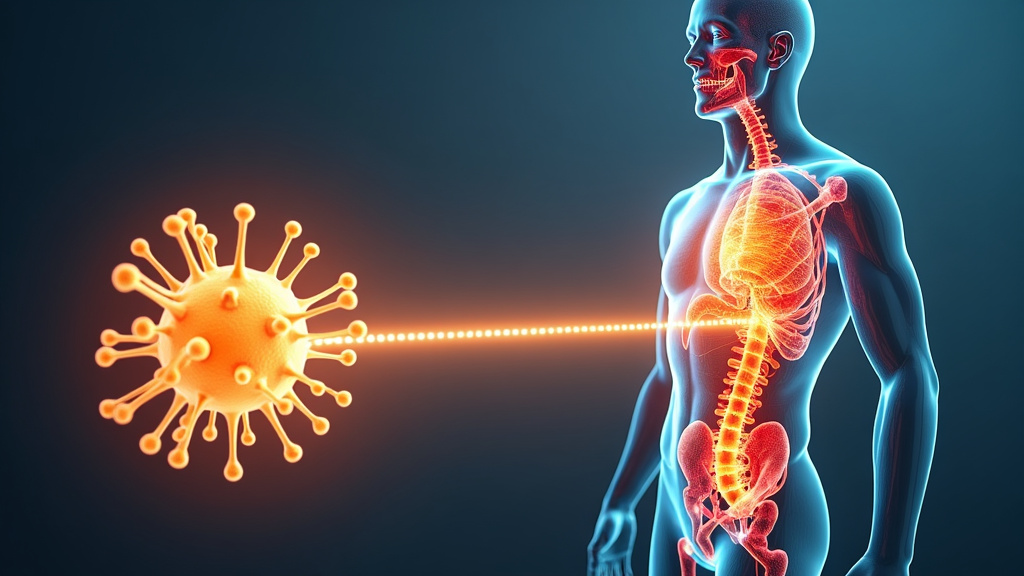
Therapeutic Benefits of Caryophyllene
Research indicates that caryophyllene may help with conditions such as chronic pain, anxiety, and depression. Its interaction with the CB2 receptors has shown potential in reducing inflammation and pain, which could make it a valuable component in treating stress-related disorders and promoting gut health.
One of the most compelling aspects of caryophyllene is its potential impact on neuroprotection. Emerging research suggests that caryophyllene may help protect nerve cells from damage, which could be beneficial in treating neurodegenerative diseases like Alzheimer’s and Parkinson’s. Its ability to modulate inflammation in the brain makes it a candidate for further study in this area.
Moreover, caryophyllene’s benefits in skincare are also noteworthy. Its anti-inflammatory and antimicrobial properties make it an effective ingredient in topical treatments for conditions like acne, psoriasis, and eczema. When applied directly to the skin, caryophyllene can help reduce redness, swelling, and irritation, offering a natural solution for maintaining healthy skin.
Caryophyllene and Aromatherapy
Due to its soothing properties, caryophyllene is commonly used in aromatherapy. Its spicy, warm aroma is believed to have calming effects, making it a popular choice for stress relief. Additionally, its anti-inflammatory properties extend to topical applications, where it can be used to alleviate pain and discomfort.
In aromatherapy, caryophyllene is often used in blends designed to promote relaxation and reduce stress. Its grounding aroma can help create a sense of calm and balance, making it an excellent choice for evening routines or times of high stress. When diffused in essential oil form, caryophyllene can fill a room with a comforting scent that not only enhances mood but also potentially supports mental clarity and focus.
Moreover, caryophyllene’s versatility extends to its use in massage oils and balms. When combined with other essential oils, it can be applied topically to soothe sore muscles, reduce inflammation, and improve skin health. The terpene’s ability to penetrate the skin and interact with local CB2 receptors makes it an effective ingredient in holistic therapies aimed at relieving both physical and emotional tension.
The Effects and Potential Benefits of Caryophyllene
Caryophyllene is associated with several potential health benefits, particularly due to its unique interaction with the endocannabinoid system. These effects include pain relief, anti-inflammatory benefits, and stress reduction. It may also contribute to improved digestive health and mood regulation.
One of the most notable effects of caryophyllene is its impact on pain management. By binding to CB2 receptors, caryophyllene helps modulate the body’s inflammatory response, which is often a key factor in chronic pain conditions. This makes it a promising natural alternative to traditional painkillers, particularly for those looking to avoid the side effects associated with long-term use of pharmaceuticals.
In addition to pain relief, caryophyllene may also have a significant influence on mental health. Research suggests that its anti-inflammatory properties extend to the brain, where it may help alleviate symptoms of anxiety and depression. This potential to reduce neuroinflammation could make caryophyllene a valuable component in the treatment of stress-related disorders, offering a natural way to enhance emotional well-being.
Pain Relief
Caryophyllene’s ability to bind to CB2 receptors makes it effective in reducing pain, particularly neuropathic pain, by modulating inflammatory responses in the body.
This terpene’s pain-relieving properties are especially beneficial for individuals suffering from chronic conditions such as arthritis, fibromyalgia, and multiple sclerosis. By reducing inflammation at the source, caryophyllene can help decrease the intensity and frequency of pain, providing a more sustainable and less invasive approach to pain management.
Furthermore, the analgesic effects of caryophyllene are not limited to chronic pain. It may also be useful in treating acute pain from injuries or surgeries. When used in conjunction with other terpenes and cannabinoids, caryophyllene can contribute to a well-rounded pain management strategy, offering both immediate relief and long-term benefits.
Anti-inflammatory Effects
As an anti-inflammatory agent, caryophyllene may help alleviate symptoms of various inflammatory conditions, including arthritis and inflammatory bowel disease.
The anti-inflammatory properties of caryophyllene are primarily due to its interaction with CB2 receptors, which are found in high concentrations in the immune system. By activating these receptors, caryophyllene helps regulate the body’s immune response, reducing the production of pro-inflammatory cytokines and other compounds that contribute to inflammation.
In cases of injury or infection, caryophyllene’s ability to reduce inflammation can also support faster healing and minimize scarring. Its use in topical formulations allows for targeted relief, particularly in conditions like eczema or psoriasis, where inflammation plays a significant role in symptom severity. By calming the immune response, caryophyllene helps improve both the appearance and comfort of the skin.
Alleviating Anxiety and Stress
Caryophyllene’s interaction with the endocannabinoid system also suggests it may have anxiolytic properties, helping to reduce anxiety and manage stress.
In today’s fast-paced world, natural solutions for anxiety and stress are increasingly valuable. Caryophyllene offers a non-intoxicating way to help the body manage stress by influencing the production of cortisol, a hormone that spikes during periods of high stress. By moderating cortisol levels, caryophyllene may help promote a sense of calm and balance, making it easier to cope with daily challenges.
When combined with other calming terpenes like linalool and myrcene, caryophyllene can create a powerful stress-relief blend. This combination enhances relaxation and supports a positive mood, making it an ideal choice for those seeking natural remedies to improve their mental health. Whether used in aromatherapy, edibles, or topicals, caryophyllene-rich products can offer a holistic approach to managing stress and anxiety.
Promoting Gut Health
Caryophyllene’s anti-inflammatory properties extend to the gut, where it may help protect against conditions like colitis and improve overall digestive health.
A healthy gut is essential for overall well-being, and caryophyllene’s ability to reduce inflammation in the digestive tract can play a key role in maintaining gut health. Conditions like inflammatory bowel disease (IBD) and colitis are often characterized by chronic inflammation, leading to pain, discomfort, and a host of other symptoms. Caryophyllene’s interaction with CB2 receptors in the gut helps to calm this inflammation, providing relief from these symptoms and promoting healing.
Moreover, by improving gut health, caryophyllene may also positively influence other aspects of health, including mental well-being. The gut-brain connection is well-established, with a healthy gut often leading to improved mood and cognitive function. Caryophyllene’s dual action on both the gut and the brain makes it a valuable compound for those looking to support their health holistically.

Caryophyllene and CBD – A Powerful Duo
Caryophyllene and CBD together create a synergistic effect, enhancing each other’s therapeutic properties. This combination can be particularly effective for those seeking relief from pain, inflammation, and anxiety without the psychoactive effects associated with THC.
The relationship between caryophyllene and CBD is a perfect example of the entourage effect, where the presence of one compound enhances the effects of another. While CBD is known for its anti-inflammatory and anxiolytic properties, the addition of caryophyllene can further amplify these effects, making the combination more effective than either compound alone. This synergy is especially beneficial for individuals looking to manage chronic conditions without relying on THC.
The combination of caryophyllene and CBD is also appealing because of its safety profile. Both compounds are non-psychoactive and well-tolerated, making them suitable for a wide range of users, including those who may be sensitive to THC. This makes the duo an excellent choice for individuals seeking natural, non-intoxicating alternatives for pain and stress management.
Frequently Asked Questions
What cannabis strains are high in Caryophyllene?
Strains like Purple Kush, Ricky Bobby, and Mataro Blue are known for their high caryophyllene content.
These strains not only provide the therapeutic benefits associated with caryophyllene but also offer a diverse range of effects and flavors. Whether you’re looking for something to help with pain relief, stress reduction, or simply to enjoy a spicy, aromatic smoke, these caryophyllene-rich strains are excellent options.
How does Caryophyllene interact with CBD?
Caryophyllene enhances the effects of CBD by binding to CB2 receptors, amplifying their anti-inflammatory and analgesic properties.
This interaction creates a powerful synergy that can be particularly effective for individuals managing chronic pain, anxiety, or inflammatory conditions. By working together, CBD and caryophyllene offer a balanced, non-intoxicating approach to health and wellness, making them a popular choice for those seeking natural alternatives to pharmaceuticals.
Does Caryophyllene cause psychoactive effects?
No, caryophyllene does not cause psychoactive effects, as it primarily interacts with CB2 receptors, which do not produce a high.
This makes caryophyllene a safe option for individuals who want to experience the therapeutic benefits of cannabis without the mind-altering effects of THC. Its non-psychoactive nature also makes it suitable for use at any time of day, whether you’re looking to manage symptoms while at work or unwind in the evening.
What other plants contain Caryophyllene?
In addition to cannabis, caryophyllene is found in black pepper, cloves, cinnamon, and rosemary.
These common kitchen spices not only add flavor to your meals but also offer potential health benefits thanks to their caryophyllene content. Incorporating these ingredients into your diet can provide a natural way to enjoy the therapeutic effects of caryophyllene, whether through food, supplements, or aromatherapy.
Is Caryophyllene safe to consume?
Yes, caryophyllene is generally recognized as safe for consumption and is commonly used in food and cosmetic products.
Its widespread use in everyday products highlights its safety and versatility. Whether consumed through cannabis, food, or topical applications, caryophyllene is a well-tolerated compound with minimal risk of adverse effects, making it a reliable option for those seeking natural wellness solutions.


